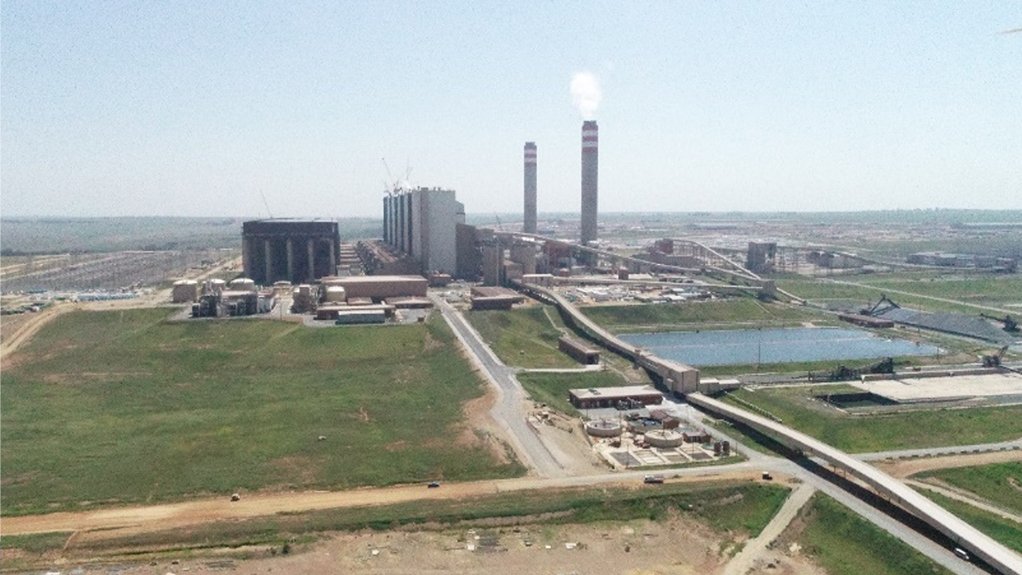Initiatives being coordinated under the aegis of the National Energy Crisis Committee (NECOM) will seek to recover and add about 8 800 MW of capacity to South Africa’s electricity supply during the course of 2023 in an effort to reduce the intensity of loadshedding, a senior official from the NECOM secretariat has confirmed.
In a briefing to editors, head of the project management office in the private office of the President Rudi Dicks, who is also heading the NECOM secretariat, indicated that the additions do not include any success Eskom may have in recovering the performance of its coal fleet.
However, the plan does assume the reintroduction during the year of the 2 160 MW associated with the three Kusile units that were rendered inoperable following the collapse of the Unit 1 flue duct in October – a development that also compromised units 2 and 3 and has added two stages of loadshedding ever since.
It also assumes the introduction of Kusile Unit 5, synchronisation of which has been delayed until at least July as a result of a pre-commissioning gas-heater fire incident.
The return of Kusile units 1, 2 and 3 this year will hinge, Dicks confirmed, on Eskom receiving a temporary exemption from the Department of Forestry, Fisheries and the Environment allowing it to bypass the flue-gas desulphurisation (FGD) plant, using temporary flues, for about two years to facilitate full remediation of the permanent flues.
Eskom acting group executive for generation Thomas Conradie confirmed that, by using temporary flues, the three units could be returned to service about a year earlier than would be the case if Eskom were to focus exclusively on the repair of the three permanent flues, which share a common chimney.
Should Eskom secure the exemption to bypass the FGD, it is anticipated that it will take about ten months to construct the first stack, with stacks 2 and 3 becoming available at one-month intervals thereafter.
The temporary stacks will be designed, constructed and commissioned by Concor and preparatory work is reportedly already in progress.
The balance of the plan includes:
- Importing electricity from Botswana, Zambia and Mozambique in addition to the 300 MW already being purchased from the Southern African Power Pool, to increase imports by about 1 600 MW overall;
- Implementing Eskom’s Standard Offer to buy electricity at a set price from existing commercial and industrial entities with surplus generation, as well as through its emergency generator programme, which pays a variable price based on Eskom’s hourly market price. Together, the programmes are expected to secure 1 000 MW;
- Implementing a net-billing and/or feed-in tariff to unlock supply from commercial and household rooftop solar generators to secure and initial 850 MW this year;
- Supporting the utility-scale embedded generation projects that could introduce nearly 1 600 MW in 2023;
- Completing the first 200 MW phase of Eskom battery energy storage roll-out;
- Mopping up 70 MW of surplus supply available from existing renewable facilities; and
- Ramping up demand-side and energy efficiency programmes to secure savings worth about 250 MW.
SHORT-TERM PROCUREMENT & DIESEL
NECOM is also working on the details of a so-called ‘Loadshedding Reduction Programme’, whereby Eskom will be given the authority to enter into five- to ten-year power purchase agreements with new suppliers able to deliver electricity in the short term, but probably not during 2023.
It is possible that the Karpowerships could feature in this programme should these projects fail to close under the Risk Mitigation Independent Power Producer Procurement Programme, which is scheduled to be concluded by March.
Dicks also confirmed that a diesel funding mechanism had been agreed for the remainder of Eskom’s financial year to March 31, but said details would be provided by Eskom and the National Treasury.
It is believed that the National Treasury will back Eskom to raise about R5-billion in loans from commercial banks to enable it to purchase the diesel it needs to operate its open-cycle gas turbines in a way that bolsters reserves and reduces the intensity of loadshedding during February and March.
Dicks refused to comment extensively on the possible declaration of a State of National Disaster, which he stressed still needed to be considered by Cabinet, following a controversial ANC lekgotla resolution stating that government should declare a State of National Disaster in order to allow it to act more swiftly in tackling the loadshedding crisis.
Dicks did suggest, however, that the declaration could help speed up various Public Finance Management Act authorisations and exemptions and could also possibly even facilitate the Kusile FGD exemption. Likewise, it could assist government beef up its efforts to secure Eskom assets, some of which have become hotbeds of crime and corruption.
Meanwhile, Eskom board member Mteto Nyati said the new board, while heavily engaged with developments at the utility, had resisted a fire-fighting role and was, instead seeking to tackle the “systemic issues” afflicting the utility.
He listed these as being Eskom’s unsustainable debt; tariffs that did not cover Eskom’s full costs; a dysfunctional culture; a lack of an empowered leadership; weak internal controls; insufficient transmission grid capacity; criminality and corruption; non-compliance with environmental emission standards; reactive planning and management; and a failure to “speak with one voice”.
“If we do not address these systemic issues, we are not going to be able to get out of the challenge we are facing,” Nyati said, stressing that, while there were many technical aspects that needed attention, the turnaround would also depend on addressing the so-called “soft issues”.
EMAIL THIS ARTICLE SAVE THIS ARTICLE ARTICLE ENQUIRY
To subscribe email subscriptions@creamermedia.co.za or click here
To advertise email advertising@creamermedia.co.za or click here











